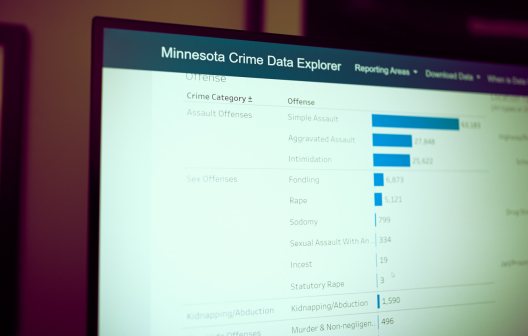New Rhode Island law forces police to get warrants for cell phone location data

Rhode Island Gov. Gina Raimondo just put pen to paper on a bill requiring all law enforcement agencies in her state to get a warrant before accessing cell phone location data.
Raimondo signed the legislation Tuesday, giving her stamp of approval to bills sponsored by state Rep. Edith Ajello and Sen. Donna Nesselbush in their respective chambers and barring police from tracking location data from mobile devices without going to a judge first (unless they can prove an emergency exception to that requirement).
“Requiring a warrant in most circumstances before this information is turned over to police will not make it impossible for law enforcement to access our information; it will not even be particularly difficult,” Ajello and Nesselbush wrote in an opinion piece for the Providence Journal championing the legislation. “But it will ensure some oversight by a judge to confirm that, if our information is up for grabs, it is for a good reason. We want law enforcement to have the tools it needs to keep our neighborhoods safe, but that does not have to come at the price of our privacy.”
Specifically, the new law bars police from accessing “any information concerning the location of an electronic device that, in whole or in part, is generated by or derived from the operation of that device” without getting a warrant first.
The legislation also specifies that, if police succeed in getting permission from a court to monitor this data, they have to notify the subject of their surveillance within five days and lay out the data they’ve tracked. However, they can ask a judge to delay that notification for up to 90 days, if they can prove that informing the subject would put someone in danger, or cause them to destroy potential evidence.
The law does allow police agencies to avoid getting a warrant to track this information in some cases, laying out several exceptions (including emergency situations where officers believe lives are at stake) police can claim.
[Read more: Documents show Boston police never obtained warrants to use cell-site simulators]
Law enforcement agencies are free to use a cell phone’s location data if someone is calling for emergency services, or if they feel the user is in imminent danger, in addition to several scenarios.
Each agency that applies for warrants to access this data will also have to submit an annual report to the Legislature detailing how many warrants they’ve asked for and received.
In all, privacy advocates have roundly praised the new law. The state’s American Civil Liberties Union chapter was a particularly vocal advocate of the legislation, pointing to research showing that the average mobile phone searches for the nearest cell tower every seven seconds as a way to illustrate just how accurately these devices can provide information about someone’s location.
“[This legislation limits] perhaps the most comprehensive surveillance of individuals we have faced to date,” Hillary Davis, a policy associate with the group, said in a statement. “Rhode Island’s privacy laws have long been out of touch with leaps in technology, and the increased potential for the misuse of this information against innocent individuals. This long-overdue legislation brings Rhode Island’s privacy laws more in line with 21st century realities.”
With the legislation’s enactment, Rhode Island joins just a handful of other states to put similar warrant requirements in place. According to an analysis by the national chapter of the ACLU, just six other states have clear requirements for police to obtain warrants before tracking any cell phone location data.
The analysis shows that three states — New Jersey, Illinois and Indiana — force law enforcement agents to get warrants to track the data in real time, while Massachusetts requires a court order for only archived location data.
By contrast, the group also found that courts in 13 other states have ruled that police don’t need to warrants to access location information. In 20 others, there’s no state law or judicial opinion to provide guidance on the topic.






